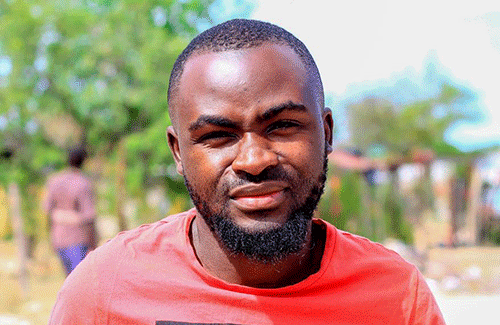Daniel Hafeni
Outjo municipality, located in the Kunene region, has been grappling with a deteriorating state in recent years. The municipality, once known for its vibrant community and relatively well-maintained infrastructure, has experienced a decline that has left residents disheartened and concerned about their future. But, as the community grapples with various challenges, it is crucial to envision a brighter future, and take decisive action to revitalise the municipality by addressing infrastructure deficiencies, enhancing service delivery, and promoting community engagement.
At the heart of any vibrant municipality lies robust infrastructure. The Outjo municipality must prioritise the rehabilitation of roads, drainage systems and public facilities. Addressing the persistent issue of potholes and ensuring reliable water and electricity supply will not only enhance residents’ daily lives, but also attract businesses and tourism, fuelling economic growth.
But the municipality still depends on the apartheid-era infrastructures such as roads, and the drainage and water systems. Most of this infrastructure’s lifespan is up, and needs to be rehabilitated. Residents even feel that apart from being brutal, the apartheid regime ran the town better, and there was visible development for both the white and black community. But not all is lost, as some community members still approach the municipality to fund road rehabilitation, boreholes and cleaning the town with their own funds. But even this is met with resistance from the town’s leadership, because just like anywhere else in Namibia, people are failing to be patriotic. Hence, they put party politics ahead of the common problems faced by residents. Service delivery ensures that the basic needs of the residents are met.
Essential services such as clean water, sanitation, electricity and public safety are vital for a decent quality of life. Without adequate service delivery, residents may suffer from inadequate access to these fundamental necessities, leading to compromised well-being and potential health and safety risks. This year marks exactly eight years since the trenches for the envisioned sewage system were dug in the informal settlements. The trenches still remain open, regardless of numerous calls to close them.
These trenches don’t only pose a health hazard to the residents residing closer to them, but they have become ponds now, and harbour mosquitoes.
About 70% of the Outjo residents reside in the informal settlement, meaning that about 80% of the residents in the informal settlement have no access to water and electricity. Thus, they walk about one to three kilometres to fetch water, or to even charge their electrical lights. Regardless of numerous demonstrations, the Outjo municipality’s leadership is still reluctant to answer its residents. The municipal leadership is not only ignoring its residents, but also its grassroots employees, whose salaries remain poor, regardless of a directive from the ministry to upgrade since 2014. Now, this decreases the motivation and morale of employees, and they are thus disengaged and less motivated to perform at their
best. This, coupled with other factors, is the cause of poor
service delivery. Meaningful community engagement is the key to ensuring development in Outjo. The municipality must establish platforms for residents to voice their concerns, actively involve them in decision-making processes, and encourage civic participation. By empowering residents as active stakeholders, the municipality can harness local knowledge and aspirations to shape a shared vision for a prosperous future. However, the leadership of the town only convened one meeting with the residents since the beginning of this year. This
is so disheartening, especially when residents are faced with many problems emanating
from a lack of service delivery.
Why is the municipality’s leadership scared of its own people? Is there more than what meets the eye?
Despite these challenges,
there is still hope for the revitalisation of the Outjo municipality.
Recognising the urgency
of the situation, community members, civil society organisations and local leaders must begin working together to address this issue. Efforts must be made to improve governance, promote accountability, and enhance community engagement. Outjo was known for its brutal apartheid era, but perhaps for the first time since independence, there is cohesion amongst the black and white community.
The residents have grown tired of poor service delivery, and have resorted to ‘an injury to one is an injury to all’. Thus, even those with access to most services are fighting for the forgotten masses.
While the road to recovery may be extensive and arduous, the resilience and determination of the Outjo municipality,
coupled with concerted efforts from all stakeholders, can pave the way for a brighter future. With a renewed focus on sustainable development
and effective governance, Outjo
has the potential to regain its former glory, and become a prosperous and inclusive municipality once again.
* Daniel Hafeni is an Outjo resident. This view is entirely his.



